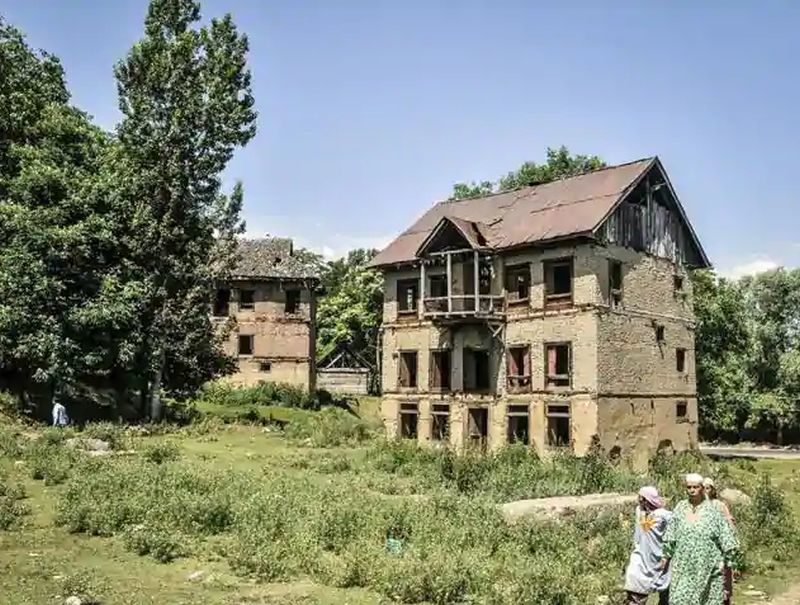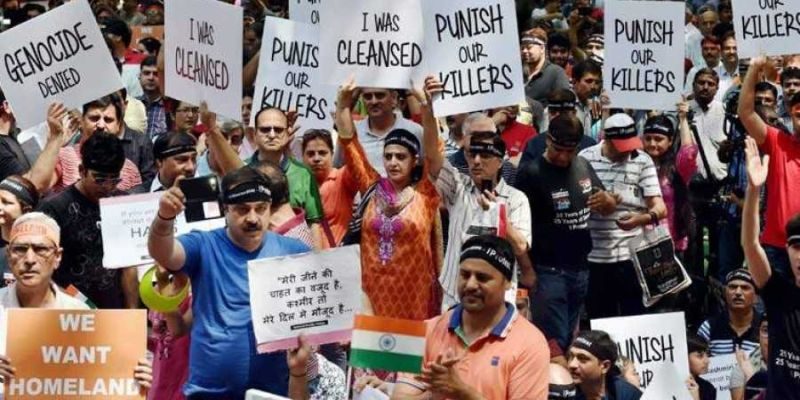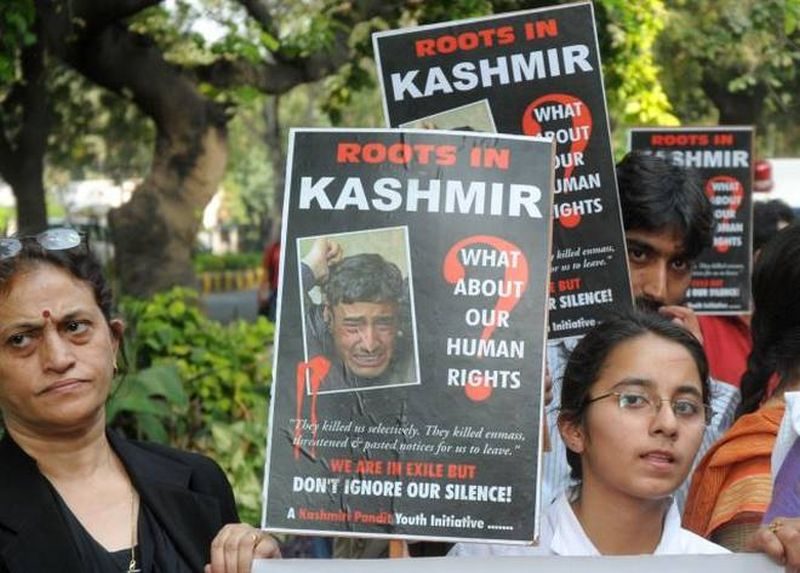It’s been almost 30 years. More than 7 lakh people are still looking for a roof. They are still searching for a brick and cement structure that they can call home. Lakhs of Kashmiri Pandits, who fled overnight from the Valley of Kashmir in 1990, are still wandering and wondering: Where should the exiled go? Even before they complete the question, another one pops up – Is there even a home for Kashmiri Pandits? A closer look at the question reveals that even the idea of a home becomes divisive along religious and political lines. In such a scenario, how can a Kashmiri Pandit imagine a home for himself, built deep inside the valley of Kashmir?
The plan for a composite townships for Kashmiri Pandits
 Image Source : english.cdn.zeenews.com
Image Source : english.cdn.zeenews.com
Earlier in 2017, the PDP-BJP led coalition government had successfully identified almost 90 acres of land where more than 4000 transit accommodations could be built for the migrant community of Kashmiri Pandits. The government had also opened up 3000 jobs only for the exiled community, half of which are already occupied in less than a year.
However, the Kashmiri Muslims residing in the Valley are against providing special towns for Kashmiri Pandits. According to the ones protesting, this plan for composite townships will divide the state of Kashmir on religious and political lines. According to some more, this plan is more likely a strategy of the BJP government and the RSS to create a safe space for the Kashmiri Pandits and incite the community to initiate riots and violent attacks against the Muslims in the Valley.
But there are many Kashmiri Pandits, famous actor Anupam Kher amongst them, who urge for composite townships for the migrated community. For Kher, it is not a debate, but rather a compulsion for the State and the Central governments to create a smart city in Kashmir for the Kashmiri Pandits. If we carefully listen to Kher’s (and others’) words, we can recognize a need for giving the Kashmiri Pandits what they deserve. Here’s why.
Why the Kashmiri Pandits deserve special towns for residence?
Image Source : thehindu.com
When in 1990, after Kashmiri Muslims threatened the Pandits to either flee Kashmir, convert to Islam, or be killed – the Pandits opted the first option (of course, not willingly). Houses of thousands of Kashmiri Pandits were either destroyed or looted. Consequently, most of the exiled families who fled Kashmir after the fateful night of 19th January, 1990, now do not have a home to return to.
In such a scenario, isn’t it more mandatory than debatable that these families deserve a new, demarcated space of their own? Also, he is a dimwit at best who willingly chooses to go back and live in the same houses where he did not feel safe at one time! Isn’t thinking about one’s safety and concern a prerogative of the minority community? Or is it a luxury only gifted to the ones who aren’t a Hindu in India?
In search of a home for the Kashmiri Pandits
 Image Source : hindustantimes.com
Image Source : hindustantimes.com
The 1990 exodus of Kashmiri Pandits did not only rob the community of its land, but also of its sense of belonging in the world. No matter where a Kashmiri Pandit goes, he cannot claim that soil or that bricked architecture as his home. Kashmiri Pandits, especially the aged ones, aren’t happy that they escaped the threat that loomed large over their lives 30 years ago. Rather, these elderly beings, even the well settled ones, long to go back to their ancestral home in the last days of their lives. They are still waiting for the Kashmir situation to resolve, or at least, improve.
But who will tell them that the house they once called home is no longer theirs? Who will acquaint them with the fact that they will probably never get to breathe their last on the chaarpai they once sat on and sipped on their tea while gossiping with others? And who will announce to them that the government which once promised to make it right for them is now just offering them lip service on the pyre of their wishes?
No matter where the State or the Central governments plant a roof over the heads of Kashmiri Pandits in the Valley – in an integrated setting or in a transit accommodation, questions are bound to surface. If the Pandits are allowed to return to their ancestral houses, will they be replacing the Kashmiri Muslims who already reside there? Will the answer to one form of displacement another form of the same? And even if by a stroke of luck, a family finds its ancestral home empty, waiting for the sounds of its footsteps to echo once more, will the family be safe and secure among an even more hostile environment than the one dating back three decades? And what about those whose homes are no longer there? Where will they go? Where will they live? How will they find a way to connect to the land they once roamed freely?
Will the quest for a home ever end?
 Image Source : images.newindianexpress.com
Image Source : images.newindianexpress.com
No matter what happens, the question remains the same – is there a home for Kashmiri Pandits? Be it in a mixed setting with the Kashmiri Muslims. Or be it in composite townships in a physically demarcated land, away from the Muslims. It looks like the search for a home is a never ending quest for the exiled community of Kashmiri Pandits. They might always wander around, looking for a part of land where they can actually feel a sense of belonging and acceptance.
Turned away from their homeland, a minority in their own nation, and unable to return to their own soil, the community of Kashmiri Pandits looks doubly displaced. Will they ever find a home they can forever call their own – in a physical, emotional, religious and political sense? And more so, is this a home they want, need or deserve? Even after 30 years of exile, the answer still eludes the sheltered homeless community of the Kashmiri Pandits.




